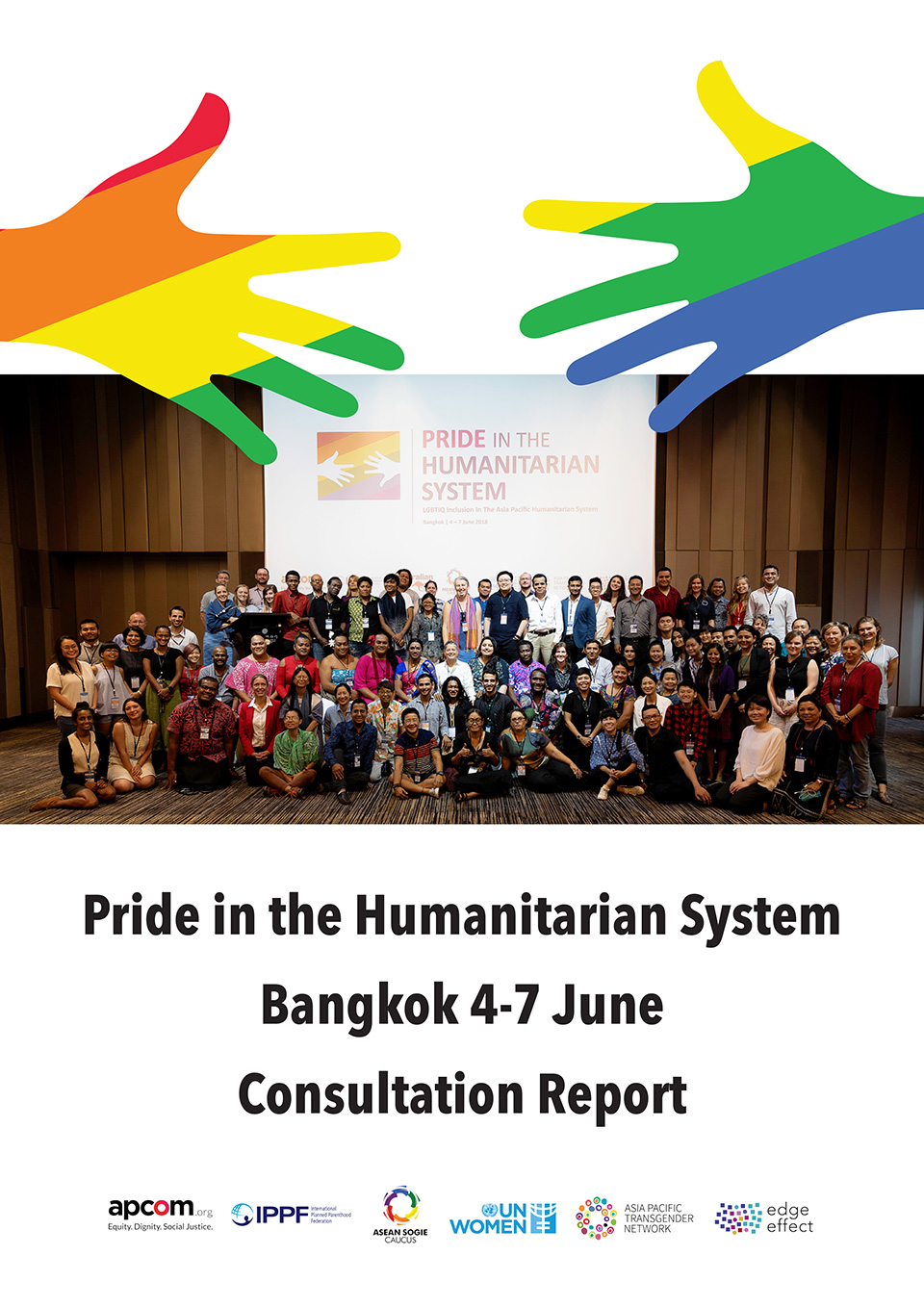
Pride in the Humanitarian System Consultation Report

The Asia and the Pacific region is more vulnerable to disaster impacts than any other region in the world, and is home to multiple complex emergencies and protracted humanitarian crises. The vulnerabilities of marginalized people are often exacerbated in disasters, emergencies and crises. There is a growing literature that demonstrates that this is the case for people of diverse sexual orientation identity and expression, and sex characteristics (SOGIESC),with impacts during preparedness, relief and recovery phases.
The vulnerability of people of diverse SOGIESC results from varying levels of criminalisation, legal and justice sector discrimination, and marginalisation in family, community, faith, schools, workplaces, service delivery organisations, public spaces and other institutions and contexts. Despite this, evidence from recent disasters in the Asia and the Pacific region also demonstrates the capabilities of diverse SOGIESC populations to cope in the aftermath of disasters, and to leverage social networks in preparedness, relief and recovery phases for themselves and their communities.
However, the humanitarian system has largely failed to recognise these vulnerabilities or capabilities. Existing frameworks, policy and good practice guidelines frequently fail to address people of diverse SOGIESC, perhaps making tokenistic mention of the need to consult. In practice diverse SOGIESC CSOs and communities have not provided with opportunities or support to participate within the humanitarian system, and their voices and issues are rarely present in assessments, evaluations and other consultations.
This consultation report summarizes discussion points and outcomes of the Pride in the Humanitarian System consultation held in Bangkok in June 2018, bringing together over 120 representatives from diverse SOGIESC CSOs and communities, and other stakeholders in the humanitarian system including international NGOs, United Nations agencies, and donors.